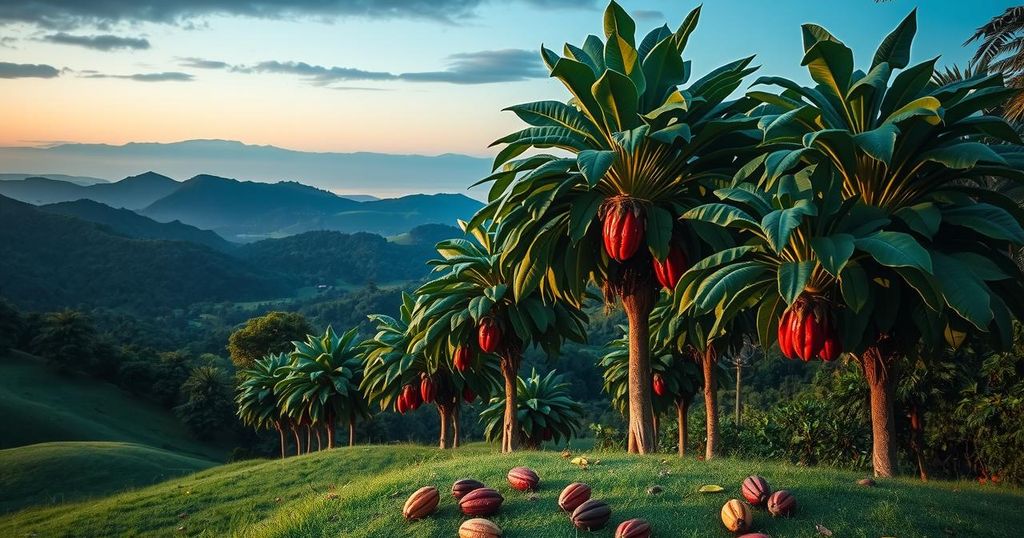Climate Change Threatens Cocoa Production in West and Central Africa

A study reveals that climate change may reduce cocoa-suitable areas in West and Central Africa by 50% by 2050. Among the major producers, Ivory Coast and Ghana could face the most severe impact, while regions like Nigeria may benefit. Managing these shifts poses significant challenges for agriculture and forest preservation.
A recent study indicates that climate change could significantly impact cocoa production across West and Central Africa by 2050. This region accounts for over 70% of global cocoa output, primarily from Ivory Coast, Ghana, Nigeria, and Cameroon. Utilizing a cocoa crop model, researchers simulated yield changes over 30 years to assess potential future scenarios influenced by climate factors such as temperature and precipitation.
The ongoing changes in climate are projected to negatively affect cocoa farming viability in certain areas, while others may see benefits. The research focused on the largest cocoa-producing countries, mirroring historical yield data alongside future climate scenarios. The CASEJ model was implemented to understand how varying climate conditions could influence cocoa agriculture, emphasizing the necessity for adaptive strategies to sustain production.
In conclusion, the study reveals alarming predictions for cocoa agriculture in West and Central Africa, where a potential 50% reduction in suitable farming land could occur by 2050. These changes underscore the need for immediate attention to climate adaptation while highlighting the importance of safeguarding biodiversity. The impacts will vary across regions, prompting urgent research into cocoa’s response to climate dynamics and management practices to mitigate deforestation.
Original Source: www.downtoearth.org.in






